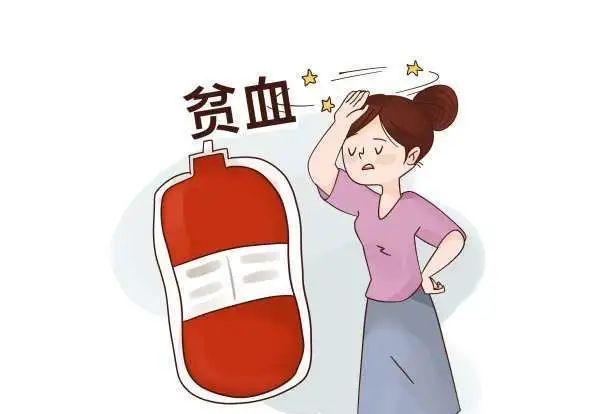Recently, Gao Fengyu, director of the Gastroenterology Department of Shandong Provincial Maternal and Child Health Hospital, came to the outpatient clinic of such a patient, who looked pale and listless at a glance.
"I always feel flustered, I'm tired, I'm dizzy, my ears are ringing, and my family has always said that I may be too tired at work and not rest enough, but after resting the whole Spring Festival, I still don't see any improvement," Ms. Zhang said worriedly.

According to the patient's symptoms, Director Gao gave her a basic blood test, which suggested iron deficiency anemia. The patient was asked whether he had menorrhagia, black stools, blood in the stool, partial eating, etc., and all answered that there was no obvious abnormality.
"I suggest you do a gastrointestinal endoscopy," Director Gao finally said.
Although Ms. Zhang agreed to the examination, she expressed great doubts: I have a good vegetarian appetite and am not picky eaters, how can I get iron deficiency anemia? I don't have any obvious gastrointestinal discomfort, so why arrange a gastrointestinal endoscopy?
Are you facing the same problem as Ms. Zhang? That leaves us with layers of iron deficiency anemia.
What is iron deficiency anemia?
Iron deficiency anemia (IDA) Is a small cell hypochromic anemia in which the body's demand for iron is unbalanced and supplied, resulting in the depletion of iron storage in the body, which in turn leads to intracellular iron deficiency and induces a decrease in hemoglobin.
Is iron deficiency anemia common? What kind of people are prone to this kind of anemia?
Iron deficiency anemia is the most common anaemia worldwide, with more than 1/4 of people worldwide associated with anemia, of which iron deficiency anemia accounts for half, and the incidence is higher in infants, young children and women of childbearing age. According to WHO statistics, the proportion of all age groups is: 50% of children, 10% of adult men, 20% of women, and 40% of pregnant women.
What are the causes of iron deficiency anemia?
What does it have to do with the gastrointestinal tract?
1. The demand increases but the intake is insufficient
Children, pregnant, lactating women because of their special period of increased demand for iron needs to timely supply meat, animal liver and other iron-rich substances, otherwise long-term partial food can easily lead to such anemia.
2. Absorption disorders of iron
Under normal circumstances, the absorption of iron is in the duodenum and upper jejunum, and gastric acid and vitamin C reduce 3-valent iron to divalent stable iron, which is absorbed in the intestinal mucosa, and under normal circumstances, the excretion of iron is balanced with the absorption rate. However, when patients are accompanied by Helicobacter pylori infection, atrophic gastritis, gastric surgery, long-term diarrhea, chronic enteritis, etc., iron absorption disorders can be caused.
3, the loss of iron is too much
Chronic gastrointestinal bleeding such as menorrhagia, multiple blood donations by plain hormones, and ulcers, tumors, varicose vein rupture, and hemorrhoid bleeding in female patients can lead to iron deficiency anemia.
What are the symptoms of iron deficiency anemia?
Patients with iron deficiency anemia are often accompanied by inattention, physical strength, decreased immunity, stomatitis, dry hair, shedding, dry skin, lack of glossy nails, etc., and children can be accompanied by developmental delay, mental retardation, pica, etc.
Although Ms. Zhang did not have obvious partial eating and the amount of food she ate was normal, Director Gao still recommended that she undergo gastrointestinal endoscopy to further rule out whether there were diseases that affected the gastrointestinal iron and could lead to iron loss. Ms. Zhang's final examination results also showed: atrophic gastritis, the next is targeted treatment.
How is it treated?
Can it get better?
1, first change the unreasonable diet structure, prevent partial eating, encourage more iron-rich foods such as: animal meat, liver, blood, egg yolk, kelp, black fungus, etc., at the same time should increase vitamin C-rich foods, increase the absorption of iron;
2. Actively treat the primary disease such as chronic gastritis, peptic ulcer, etc., and give effective bactericidal treatment to Helicobacter pylori infection;
3. Give the corresponding iron treatment, oral iron is preferred, but the reserve of this iron is a slow process, and it is still necessary to supplement for about 3-6 months after the general hemoglobin is normal.
Iron deficiency anemia is not terrible, and the disease can be cured after finding the cause of iron deficiency, but if the cause cannot be found or the iron cannot be insisted on, it will evolve into chronic anemia. Infants, adolescents, pregnant women, lactating and menstruating women should be prevented in advance to avoid the occurrence of such diseases. (Text/Sang Suzhen Editor/Xu Xiao)